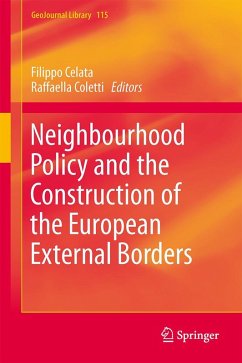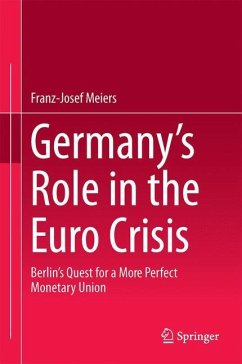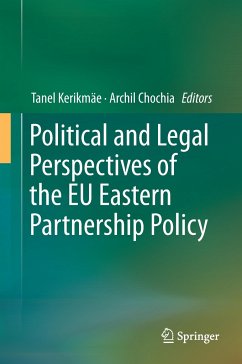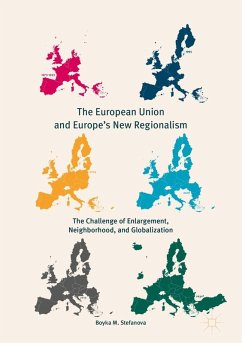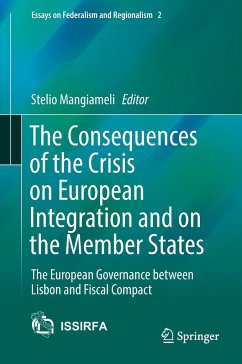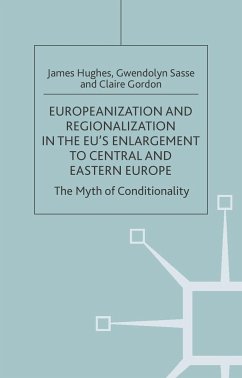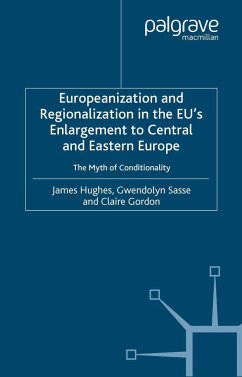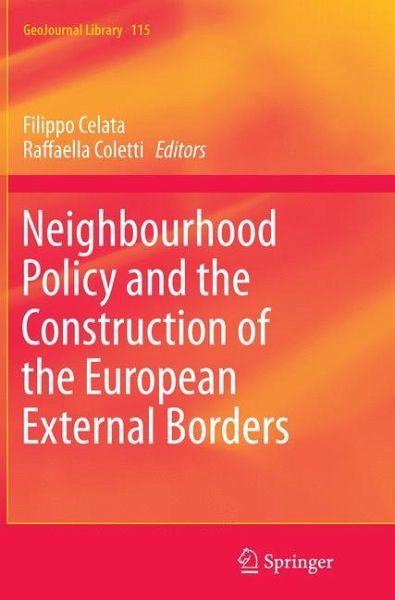
Neighbourhood Policy and the Construction of the European External Borders
Versandkostenfrei!
Versandfertig in 6-10 Tagen
38,99 €
inkl. MwSt.

PAYBACK Punkte
19 °P sammeln!
This book looks both backward and forward with regard to the European Union's political strategies towards its neighbouring countries. By bringing together the perspectives of critical geopolitics, policy studies and border studies, it presents a comprehensive review of the European Neighbourhood Policy and how it impacts the ongoing construction of the EU's external frontiers.Is the EU committed to promoting integration in a 'wider' European space, or is a "fortress Europe" emerging where the strengthening of internal cohesion is coupled with the militarisation of its external borders? The bo...
This book looks both backward and forward with regard to the European Union's political strategies towards its neighbouring countries. By bringing together the perspectives of critical geopolitics, policy studies and border studies, it presents a comprehensive review of the European Neighbourhood Policy and how it impacts the ongoing construction of the EU's external frontiers.
Is the EU committed to promoting integration in a 'wider' European space, or is a "fortress Europe" emerging where the strengthening of internal cohesion is coupled with the militarisation of its external borders? The book aims to problematize this question by showing how the EU's external policies are based on a mixture of openness and closure, inclusion and exclusion, cooperation and securitisation. The European Neighbourhood Policy is a controversial strategy where regionalization and bordering, homogenisations and differentiations, centrifugal and centripetal forces proceed side-by-side, in an explicit attempt to construct a selective, mobile and fragmented border.
A specific focus is devoted to the diversity of geo-strategies the EU is pursuing in its neighbouring countries and regions, macro-regional strategies and cross-border cooperation initiatives as new scales of cooperation, and the role of other global players.
Is the EU committed to promoting integration in a 'wider' European space, or is a "fortress Europe" emerging where the strengthening of internal cohesion is coupled with the militarisation of its external borders? The book aims to problematize this question by showing how the EU's external policies are based on a mixture of openness and closure, inclusion and exclusion, cooperation and securitisation. The European Neighbourhood Policy is a controversial strategy where regionalization and bordering, homogenisations and differentiations, centrifugal and centripetal forces proceed side-by-side, in an explicit attempt to construct a selective, mobile and fragmented border.
A specific focus is devoted to the diversity of geo-strategies the EU is pursuing in its neighbouring countries and regions, macro-regional strategies and cross-border cooperation initiatives as new scales of cooperation, and the role of other global players.



